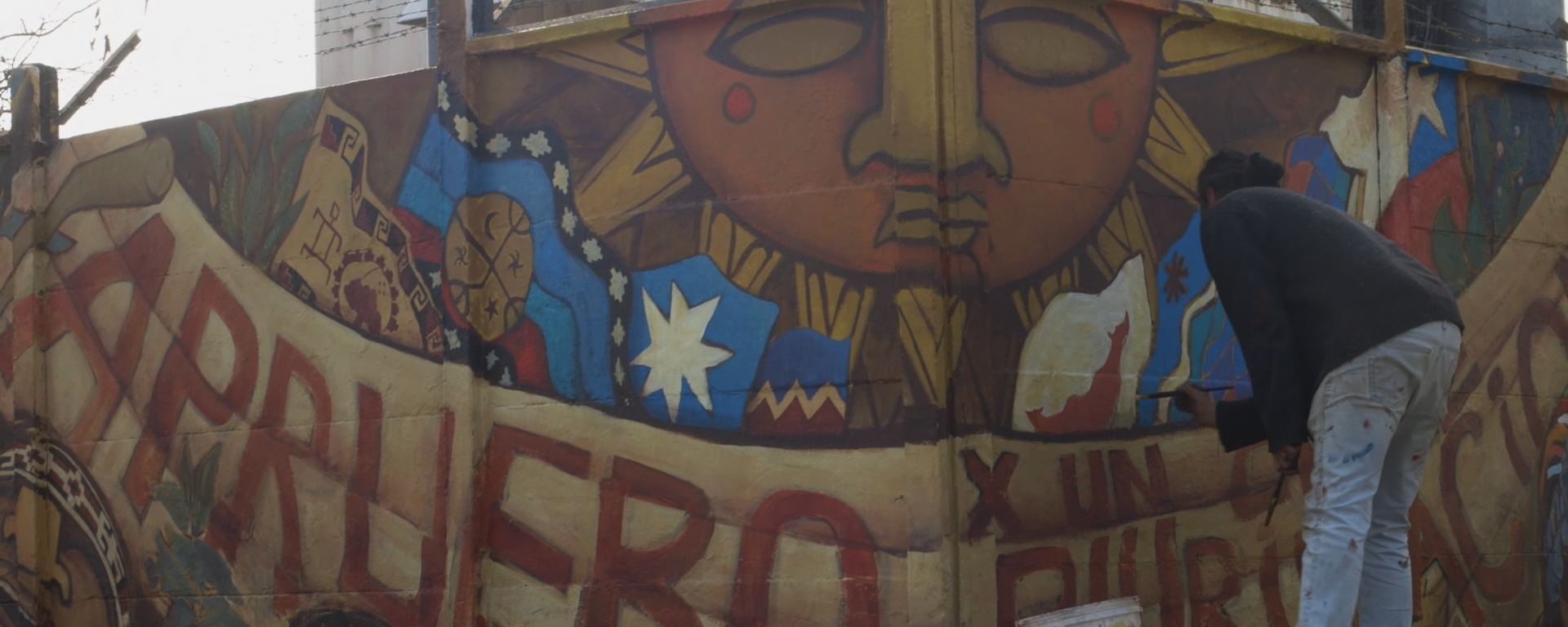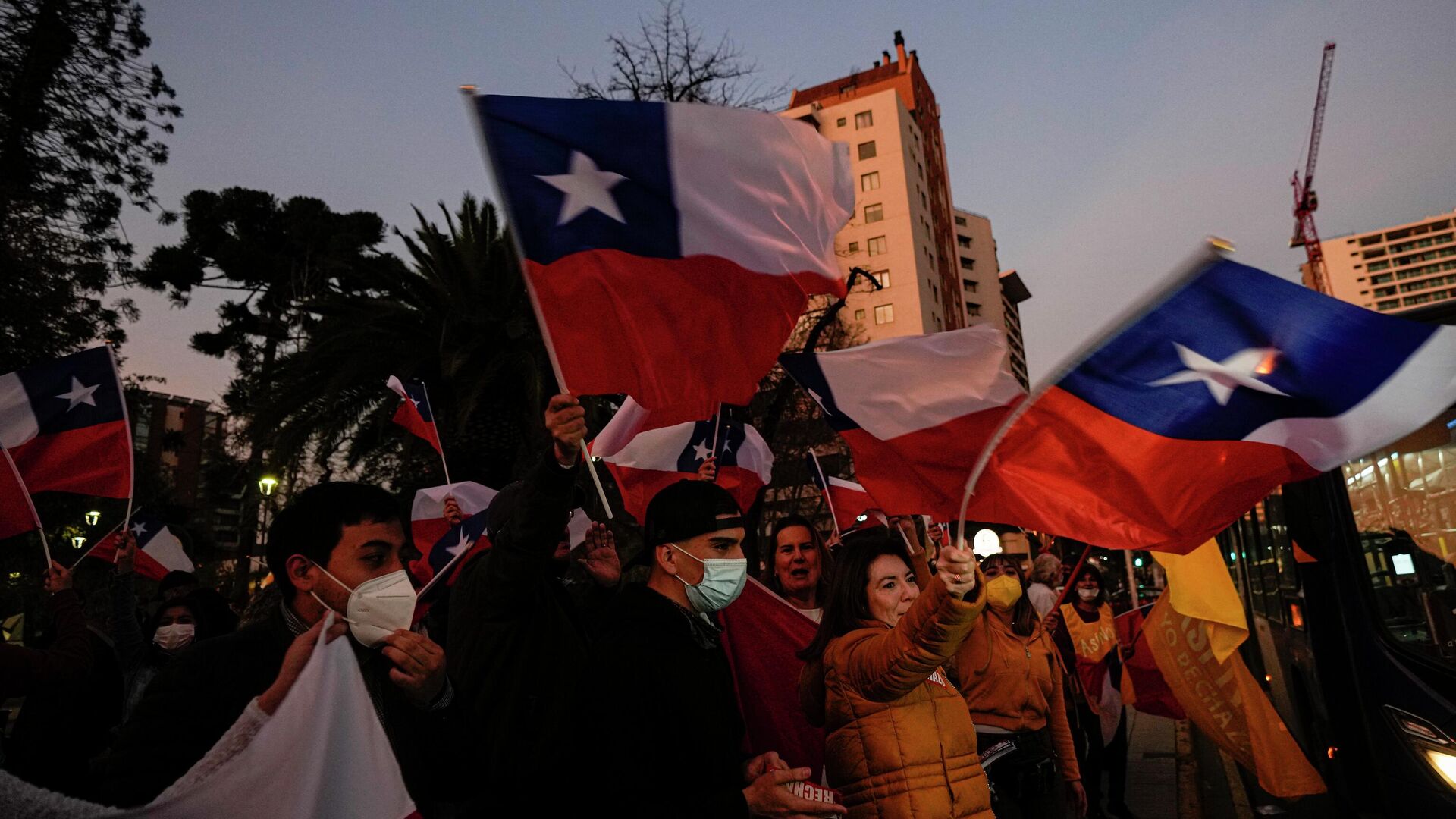https://sputnikglobe.com/20220901/whats-in-the-proposed-new-chilean-constitution-an-explainer-1100249207.html
What’s in the Proposed New Chilean Constitution? An Explainer
What’s in the Proposed New Chilean Constitution? An Explainer
Sputnik International
Recent polls indicate that wealthier critics of the proposed new constitution’s guarantees of social rights for all and recognition of indigenous sovereignty... 01.09.2022, Sputnik International
2022-09-01T02:03+0000
2022-09-01T02:03+0000
2023-04-30T17:12+0000
americas
chile
voters
polls
constitution
https://cdn1.img.sputnikglobe.com/img/07e6/09/01/1100249359_0:0:3071:1728_1920x0_80_0_0_a7e802bcb818947f51abe7324a5bdd4b.jpg
Chileans will be heading to the polls en masse this Sunday to cast their vote in an election which will decide whether the country institutes a new constitution to replace the one put in place by former dictator Augusto Pinochet.While the most recent polls available have indicated that the constitution is unlikely to pass, supporters say the institution of mandatory voting for the first time in Chile’s history could be a wild card that turns the tide in their favor this weekend.Misinformation has abounded regarding the constitution, frequently amplified by Chile’s notoriously pro-elite media ecosystem. Ekeko, a Chilean-American artist interviewed by Sputnik earlier this week, explained why the airwaves in Santiago have become thick with misinformation in recent weeks:“But it’s not a far left constitution by any means,” the artist noted. “But it does reset the whole political stage here in Chile – and the big corporations are really afraid of that. People who’ve made a big profit off business in the last 30-40 years are scared that they’re going to lose their privileges, and they’re powerful people.”But just what exactly is it that’s got them so scared?Here are some of the major changes that will take place if voters approve Chile’s new constitution this Sunday:Perhaps the most important - and contentious - aspects of the new constitution are its guarantee of housing, social security, health, work and access to food, and the fact that the constitution would also recognize Chile as a plurinational state – i.e., one country made up of many different peoples. The new constitution specifically includes the indigenous peoples which make up around 13% of of Chile’s population, including the “Mapuche, Aymara, Rapanui, Lickanantay, Quechua, Colla, Diaguita, Chango, Kawésqar, Yagán, Selk'nam, and others.”The Chilean government, which has been engaged in a deadly and highly-militant conflict with its indigenous Mapuche minority for decades, would now be legally required to "respect, promote, protect and guarantee" self-determination, collective and individual rights for indigenous groups, as well as their participation in the public sphere."The right of indigenous peoples and nations to their lands, territories and resources" would be guaranteed, and new mechanisms would be established to ensure it, including indigenous-led justice systems which would have a wide purview but ultimately be subordinate to the Chilean Supreme Court.In the institutional political realm, popular initiatives and citizen consultations would become the norm, allowing average people a greater say in how they govern themselves.The president’s power to propose a budget will be shared with Congress, and presidents will now be allowed to be reelected concurrently once. Additionally, the Senate will take a backseat to the Chamber of Deputies, and deal more with regional matters. The Deputies’ power to change laws would require a simple majority, rather than two-thirds of the votes.The constitution would also provide formal legal protections for Chile’s environment, declare that “nature has rights,” codify the need to combat climate change and protect biodiversity, and limit the areas available for industrial mining – something which could complicate growing efforts to capitalize on Chile’s position in the ‘Lithium Triangle.’Water would be explicitly banned from privatization. Gender parity would be required among certain institutions and companies, and gender violence an official government priority. Abortion, which is illegal in Chile, is not mentioned; however, but the new constitution would provide sexual and reproductive rights.
https://sputnikglobe.com/20220829/as-chiles-new-constitution-faces-uphill-battle-artists--communities-paint-murals-for-approval-1100099228.html
americas
chile
Sputnik International
feedback@sputniknews.com
+74956456601
MIA „Rossiya Segodnya“
2022
News
en_EN
Sputnik International
feedback@sputniknews.com
+74956456601
MIA „Rossiya Segodnya“
Sputnik International
feedback@sputniknews.com
+74956456601
MIA „Rossiya Segodnya“
chile, voters, polls, constitution
chile, voters, polls, constitution
What’s in the Proposed New Chilean Constitution? An Explainer
02:03 GMT 01.09.2022 (Updated: 17:12 GMT 30.04.2023) Recent polls indicate that wealthier critics of the proposed new constitution’s guarantees of social rights for all and recognition of indigenous sovereignty may have convinced Chileans to reject it–but with Chileans legally required to get out to the polls on Sunday, poorer voters could tip the scales the other way.
Chileans will be heading to the polls en masse this Sunday to cast their vote in an election which will decide whether the country institutes a new constitution to replace the one put in place by former dictator Augusto Pinochet.
While the most recent polls available have indicated that the constitution is unlikely to pass, supporters say the institution of mandatory voting for the first time in Chile’s history could be a wild card that turns the tide in their favor this weekend.
Misinformation has abounded regarding the constitution, frequently amplified by Chile’s notoriously pro-elite media ecosystem. Ekeko, a Chilean-American artist interviewed by Sputnik earlier this week, explained why the airwaves in Santiago have become thick with misinformation in recent weeks:
“This is the last stand for the moneyed elites in Chile – they’re putting a lot of money in their campaign. There’s many people that are manipulated or just misinformed, and they’re using the same tactics that the right wing uses in Latin America: fear. ‘They’re communists, they’re going to convert your children, they’re going to divide Chile. It’s not going to be one Chile anymore,’ they say.”
“But it’s not a far left constitution by any means,” the artist noted. “But it does reset the whole political stage here in Chile – and the big corporations are really afraid of that. People who’ve made a big profit off business in the last 30-40 years are scared that they’re going to lose their privileges, and they’re powerful people.”
But just what exactly is it that’s got them so scared?
Here are some of the major changes that will take place if voters approve Chile’s new constitution this Sunday:
Perhaps the most important - and contentious - aspects of the new constitution are its guarantee of housing, social security, health, work and access to food, and the fact that the constitution would also recognize Chile as a plurinational state – i.e., one country made up of many different peoples. The new constitution specifically includes the indigenous peoples which make up around 13% of of Chile’s population, including the “Mapuche, Aymara, Rapanui, Lickanantay, Quechua, Colla, Diaguita, Chango, Kawésqar, Yagán, Selk'nam, and others.”
The Chilean government, which has been engaged in a deadly and highly-militant conflict with its indigenous Mapuche minority for decades, would now be legally required to "respect, promote, protect and guarantee" self-determination, collective and individual rights for indigenous groups, as well as their participation in the public sphere.
"The right of indigenous peoples and nations to their lands, territories and resources" would be guaranteed, and new mechanisms would be established to ensure it, including indigenous-led justice systems which would have a wide purview but ultimately be subordinate to the Chilean Supreme Court.

29 August 2022, 04:47 GMT
In the institutional political realm, popular initiatives and citizen consultations would become the norm, allowing average people a greater say in how they govern themselves.
The president’s power to propose a budget will be shared with Congress, and presidents will now be allowed to be reelected concurrently once. Additionally, the Senate will take a backseat to the Chamber of Deputies, and deal more with regional matters. The Deputies’ power to change laws would require a simple majority, rather than two-thirds of the votes.
The constitution would also provide formal legal protections for Chile’s environment, declare that “nature has rights,” codify the need to combat climate change and protect biodiversity, and limit the areas available for industrial mining – something which could complicate growing efforts to capitalize on Chile’s position in the ‘Lithium Triangle.’
Water would be explicitly banned from privatization. Gender parity would be required among certain institutions and companies, and gender violence an official government priority. Abortion, which is illegal in Chile, is not mentioned; however, but the new constitution would provide sexual and reproductive rights.



